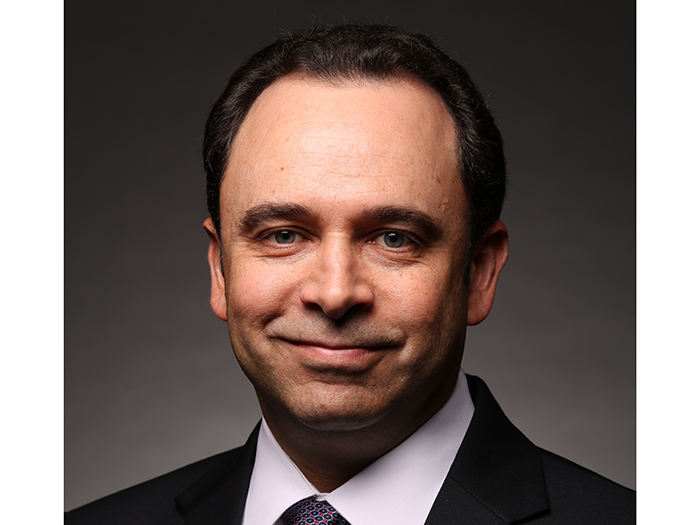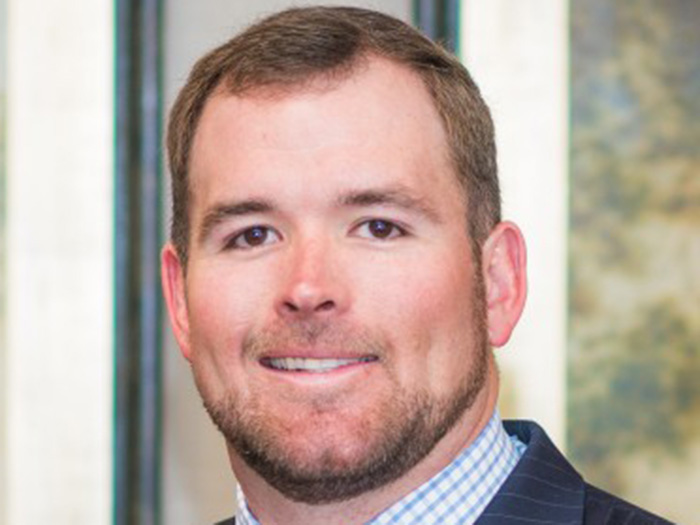How This Transportation Power Broker Mastered Storytelling to Secure Coverage for His Clients

Transportation broker Scott Buchholz knows that without insurance, his clients can’t get out on the road. If their fleets aren’t covered, trucking companies, automotive retailers and other businesses that require transportation insurance may have to close their doors — causing truckers to lose their jobs.
“If we’re not able to get coverage options for our clients and if we’re not able to get them competitive options, they can go out of business,” said Buchholz.
For one of his clients, Feld Entertainment Inc., a shuttered business doesn’t just mean taking trucks off the road. Feld, a client of Buchholz’s for over 10 years now, owns traveling productions, including Disney On Ice, Disney Live!, Monster Jam and Sesame Street Live. It also owned the now defunct Ringling Bros. and Barnum & Bailey Circus.
In total, Feld Entertainment commands a demanding transportation insurance program that requires support for 5,000 shows per year across 80 countries.
Buchholz, a national casualty practice leader at Beecher Carlson and a 2020 Transportation Power Broker® winner, works to keep Feld’s program insured, enabling the performers to continue to bring their shows before captivated audiences worldwide.
Telling a Story Is Central

Scott Buchholz national casualty practice leader, Beecher Carlson
While some of his clients may be comfortable bringing stories to audiences night after night, that kind of business model makes it trickier to present the company’s risk management story to carriers.
As a transportation insurance broker, Buchholz strives to help all of his clients tell their company’s story to insurers, especially in a market where carriers are pulling back on capacity.
“Right now, when carriers are pulling back capacity, finding folks that will come in and take some risks on a program, that’s the biggest challenge,” he said.
“I think the way that we face that and overcome that is by partnering with our clients, understanding their stories, introducing them to markets and letting them tell the story face to face.”
Storytelling doesn’t just start at renewal season, however. Buchholz also helps his clients present their stories to internal stakeholders so that they may invest in new risk management strategies and technologies, such as telematics and video cameras, and make their fleets safer.
“For internal stakeholders, it can be harder to understand the investment in telematics,” he said. “So, I help our clients sell internally on the importance of that, and then take that information and showcase it to insurance companies.
“From a risk management standpoint, it can be very challenging for them, because oftentimes it’s viewed as an expense,” he added.
“I focus on really helping our clients get internal stakeholders to view it on an enterprise level.”
Buchholz’s time as a student at the University of Georgia helped him understand the important connection between a company’s risk management efforts and the insurance offerings available to it.
There, he took a risk management class that “opened his eyes” to the value of risk management and insurance as a career path.
“Once you’re able to help clients pull out a lot of the good characteristics of what they do from a risk management standpoint, then it’s time to go to carriers,” he said.
“Being a broker and dealing with insurance companies and finding coverage for them is a good challenge. I’m going and negotiating to get the best terms possible for them and trying to come up with options.”
A Hardening Market Brings Challenges
Securing coverage for his clients is complicated by the fact that the transportation sector, like many other sectors, is entering into a hardening market.
“This is a bit of a micro-hard market,” Buchholz said. “Both our clients and the insurance companies have to think outside of the box to come up with solutions. And it’s not just a standard, off-the-shelf product that you can use.”
Adding to the challenge of a hardening market is the fact that there are a small number of players in the transportation insurance space.
This makes relationships with insurance companies key. Without them, Buchholz would be unable to get his clients’ stories heard.
“There are a very limited number of insurance companies that play in the transportation space,” Buchholz said.
“Having relationships with the key stakeholders within these insurance companies and making sure that they know all of the best characteristics of the clients that we get to work with” is of the utmost importance.
These relationships enable Buchholz to keep pushing insurance companies to find solutions for his clients’ unique risks.
“I’m always trying to go the extra mile to get as many options as possible for our client,” he said.
“It’s [about] never giving up when — say insurance companies decline something at first or they’re not interested in a risk — it’s [about] really helping the insurer to reconsider. [It’s about] not giving up, not taking ‘no’ for an answer,” he said.
While the challenge of finding coverage options in a hardening market makes his job exciting, it’s keeping companies on the road that Buchholz said is the most rewarding aspect of his job.
Helping companies keep fleets on the road is what has kept him in the transportation insurance business for 17 years.
“I’m helping to make their jobs — to be able to perform and continue to have employment — possible,” he said. “I think this is a critical thing that keeps me passionate about what we do.” &










